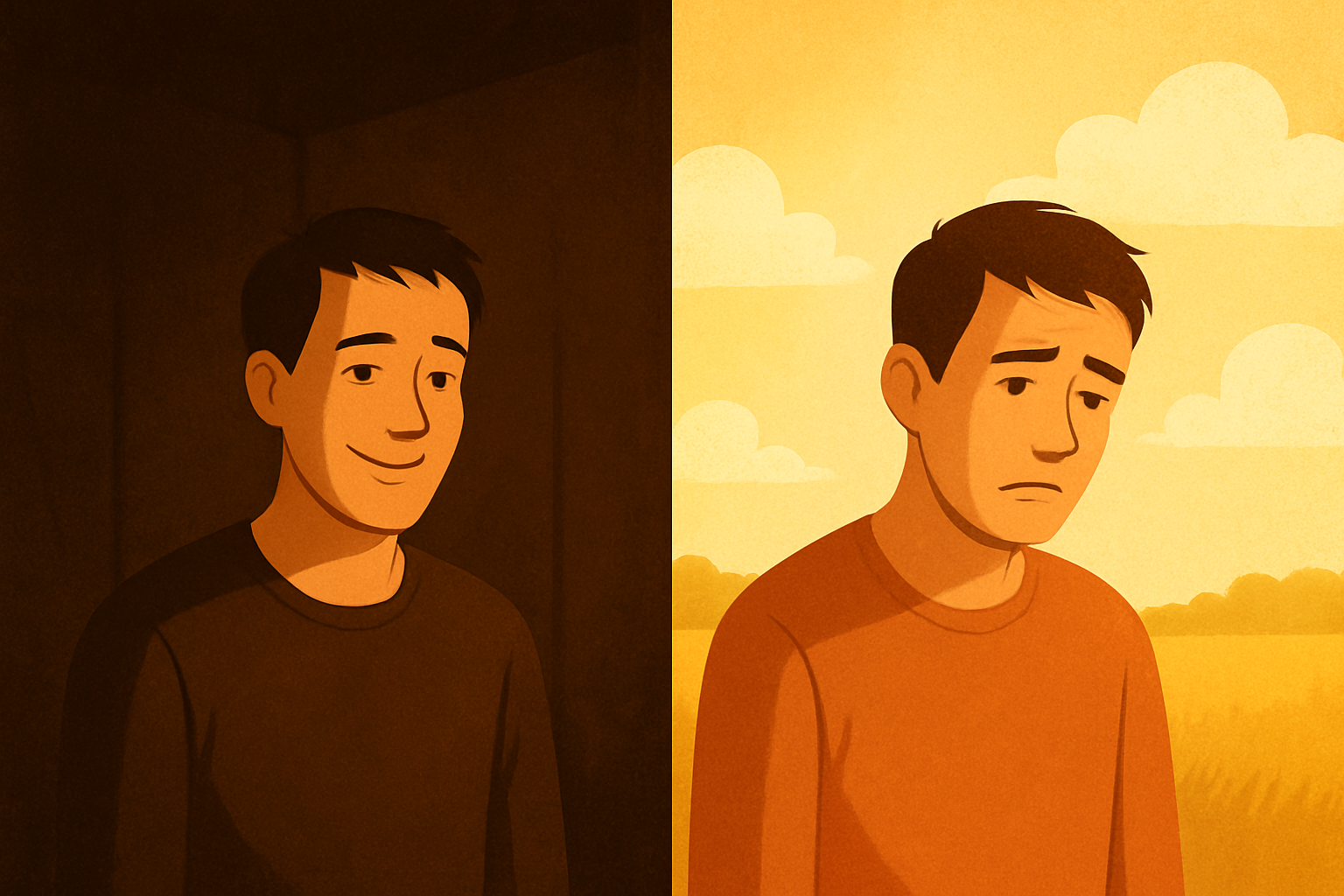On Prison and Freedom

Prison is not only a space bound by walls and bars.
It is much closer and more insidious: a narrow passage between the expectations of others and one’s own ambitions.
In it, every step grows heavy, for it is not wholly yours — in part you walk for others, in part you chase yourself, and nowhere is there room to breathe.
In such a corridor, one easily comes to believe that freedom lies somewhere outside: in wide open fields, in escape.
But true freedom does not come by breaking walls, nor by running into the distance.
It is born quietly — in the moment you realize that the walls do not decide on your behalf.
Freedom is the ability to stop measuring yourself by the gaze of others or by the speed of your own desires.
It is that calm moment when you feel you need not to be a revolutionary, nor submissive, but simply — yourself.
Then prison ceases to be prison and becomes a classroom: a place where you learn to distinguish your own voice from the whispers of others.
Freedom is not escape. For in escape we are haunted by the fear of the past.
And what kind of freedom is that, whose foundation is fear?
Freedom is a return to oneself.
And yes — a person can be free within prison walls, just as they can be imprisoned in the open.
For prison is the life in which you measure yourself by the eyes of others or the haste of your own desires.
And freedom is not a gift. It is a conquest that continues day by day, in those quiet moments when you decide not to be what others want, nor what your own impatience urges you to be, but what within you remains still — even when everything around you trembles.
Freedom is peace — the kind of peace that moves walls.
